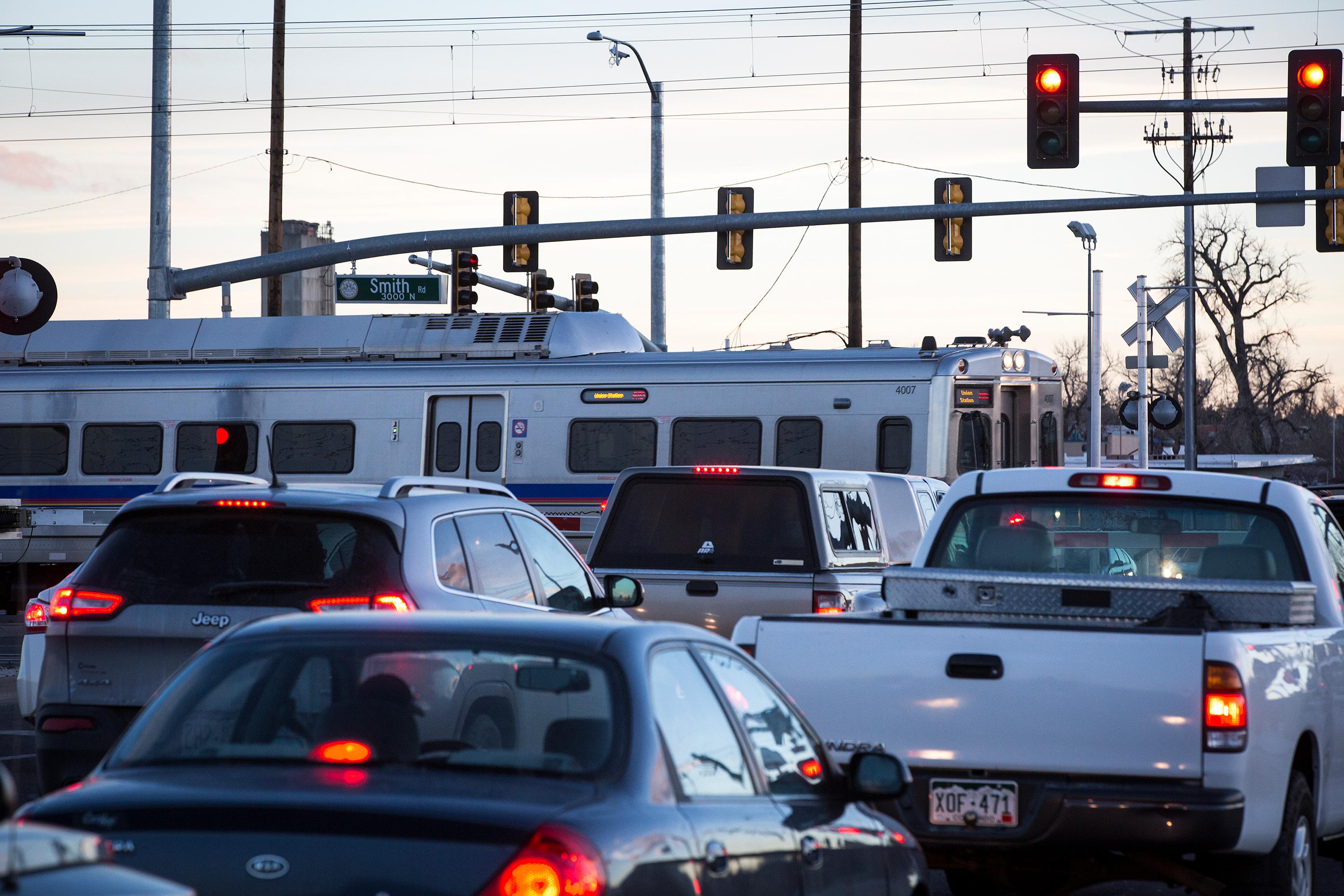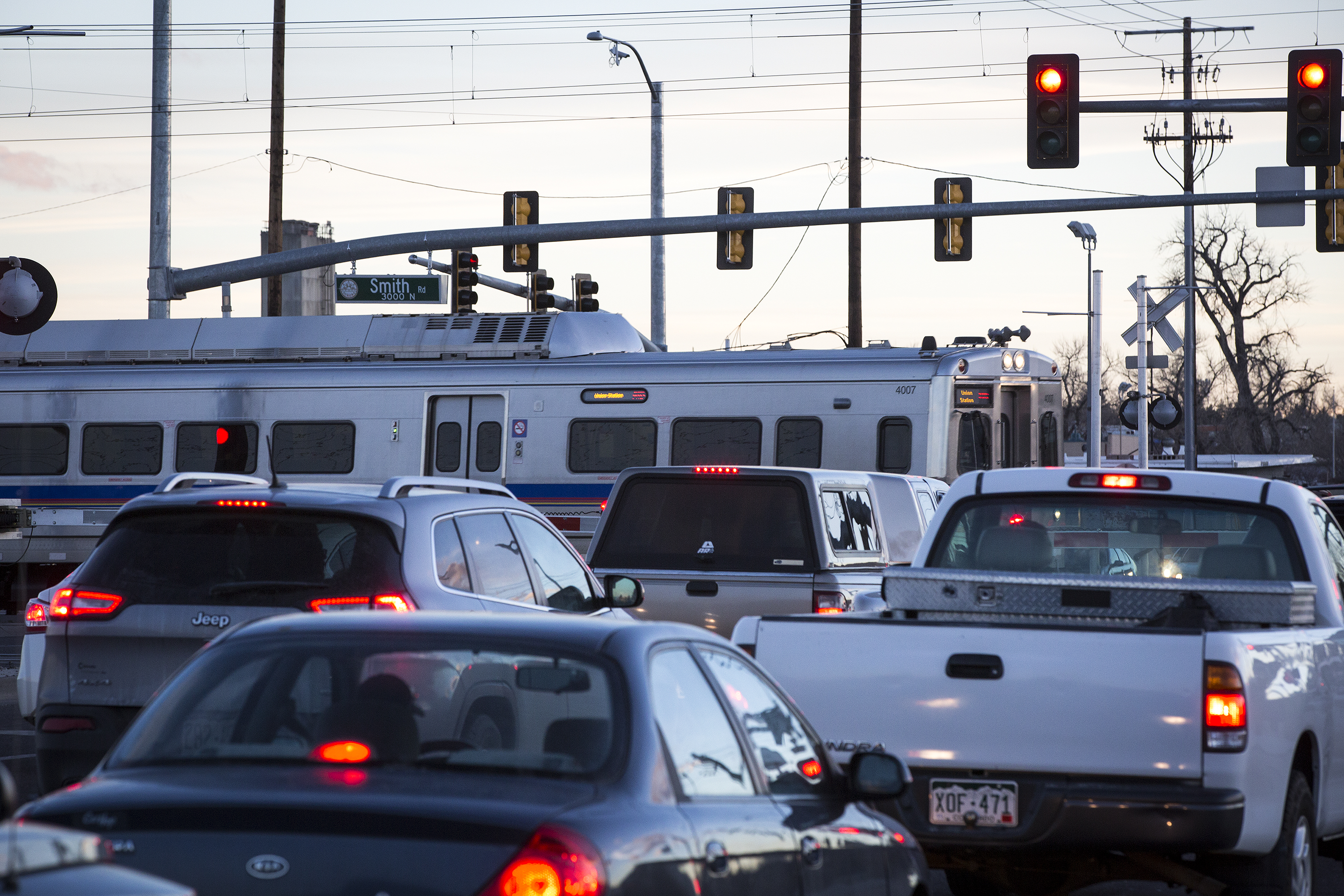

A Colorado trucking industry group has asked the U.S. Department of Transportation to intervene in a squabble over a “high risk” intersection in Aurora, where hazardous material trucks, general traffic and RTD’s A Line commuter train meet.
Hundreds of hazmat trucks cross the A Line at Chambers Road every day on their way to and from the Magellan pipeline terminal in Aurora. Earlier on Friday, a tanker accident spilled a small amount of diesel fuel at the intersection and shut down all traffic for about two hours.
“Today’s incident was a minor one but did bring to light the potential risk that is posed at this crossing,” Colorado Motor Carriers Association President Greg Fulton said in a statement.
The Federal Railroad Administration has called that intersection “high risk” and encouraged local government entities to work out a solution to “minimize risks.” At the request of the Colorado Motor Carriers Association, RTD convened a study group in 2017 and commissioned an analysis that could lead to the re-routing of hazmat traffic away from the A Line.
But in a letter, Fulton and Grier Bailey, executive director of the Colorado-Wyoming Petroleum Marketers Association, wrote that the yet-to-be-finished study has serious problems. A draft of the analysis recommended an alternative route but did not identify how to pay for needed infrastructure improvements.
“For credibility on this important safety issue, it is essential that an unbiased, objective party with no conflicting interests conduct this analysis,” the letter states, concluding that RTD does not meet those criteria.
Fulton and Bailey asked for a U.S. DOT agency — such as the FRA or the Federal Highway Administration — to perform a new study.
“In the interests of safety, we ask that this analysis be conducted as early as possible so as to mitigate the potential risk that this crossing poses today,” they wrote.
They also asked for flaggers to be stationed at the Chambers road crossing again. The FRA and state Public Utilities Commission had required flaggers to be stationed at every A Line crossing for most of the last three years, before they were sent home late last year.
The U.S. DOT could not be reached for comment, as the press office is still closed because of the federal government shutdown. In a statement, RTD spokeswoman Tina Jaquez said the crossing has been approved by all relevant regulatory agencies and noted that Fulton's group did not bring forth their concerns when the A Line was in its design phase a decade ago. Still, she said, the agency is "committed to work with all partners on alternatives."
Fulton said RTD should have noticed the high amount of hazardous material traffic during the design process and made plans for it then.








